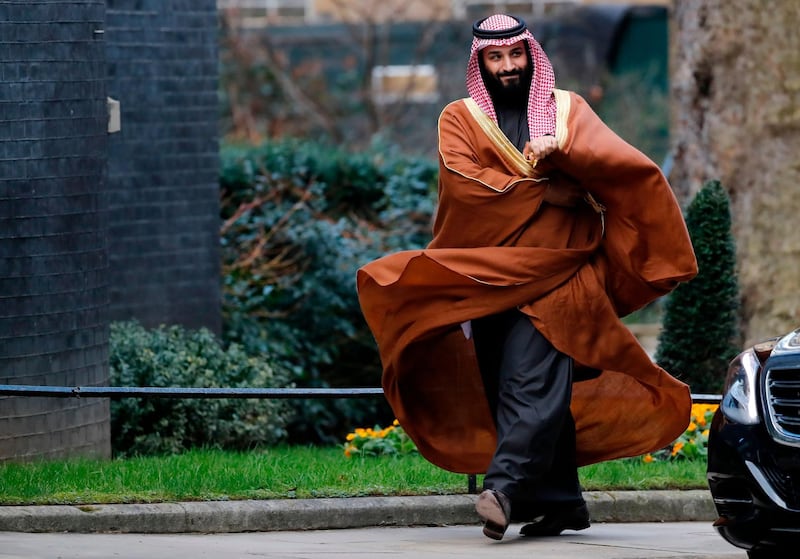A ringing endorsement of Saudi Arabia’s ambitious programme of reforms emerges from this year’s Arab Youth Survey.
Young men and women across the region have expressed widespread support for changes that include rooting out corruption, allowing women to drive, and promising greater gender equality.
They also believe the Saudi Crown Prince, Mohammed bin Salman is the right man to deliver change, putting him in an elite group of world leaders who will shape the region in the next decade, headed by US President Donald Trump, and including Sheikh Mohammed bin Zayed, the Crown Prince of Abu Dhabi and Deputy Supreme Commander of the UAE Armed Forces, and Egypt's President Abdel Fattah El Sisi.
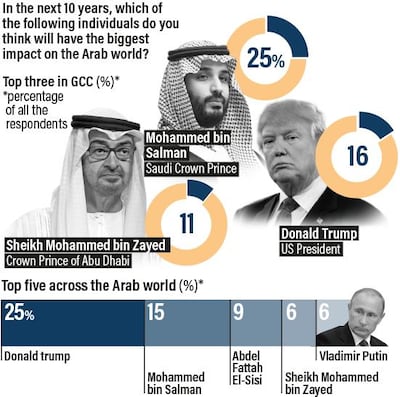
Sunil John, the chief executive of the Middle East public relations firm Asda'a Burson-Marsteller, which carried out the survey, said young Arabs saw Prince Mohammed "as a leader who will have a striking impact".
"And I think more importantly, they see Prince Mohammed as an icon, as a young leader who has emerged from a very long lineage of very senior leaders," he said.
"They see an icon who is changing the status quo.”
This is the 10th Arab Youth Survey, which involves face to face interviews with 3,500 young people between the ages of 18 and 24, in 16 countries. The group was divided 50-50 between men and women.
Outside of Saudi Arabia and the GCC, the results also show concern that the Mena region is moving in the wrong direction, and disillusion with what youth see as the failed promise of the Arab Spring.
The survey, titled A Decade of Hopes and Fears, also charts the decline in America's popularity and influence among Arabs, with Vladimir Putin's Russia emerging as the new power in the region.
The changes in Saudi Arabia are the biggest cause for optimism in the 2018 survey.
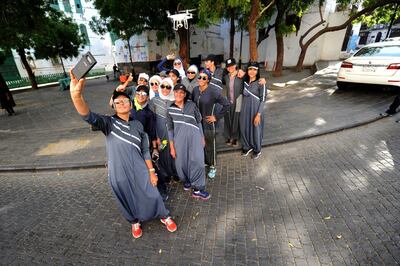
Prince Mohammed's anti-corruption campaign has touched a chord across the Arab world.
Across the region, nearly nine out of 10 young people say they support the Crown Prince, with only 12 per cent registering opposition.
In the GCC, this remains almost the same, with 85 per cent support, while even in the Levant, the most pessimistic sample in the survey, over 80 per cent back the Saudi leader.
Among young Saudis, 94 per cent of women and 91 per cent of men said they believed Saudi Vision 2030, which aims to transform the country’s economy, would succeed.
Bernard Haykel, professor of Near Eastern Studies at Princeton University, called the figures "extraordinarily high" with "a deep and broad desire across these societies for reform".
He said the Crown Prince was "the most engaged agent in its transformation".
At the same, the results were "fraught with danger" Mr Hakel added.
"They signal very high expectations among the youth about the changes (Prince Mohammed) can generate and the results he must deliver" he said.
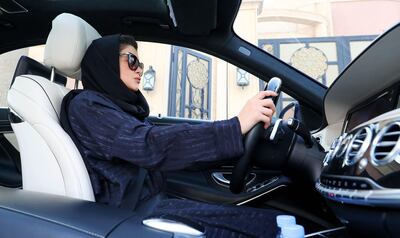
Allowing women to drive has the backing of 82 per cent of Saudi women and 81 per cent of Saudi men. Across the Mena region, nearly nine out of 10 of both sexes approve of letting the kingdom's female drivers get behind the wheel.
And support for improved personal freedom and greater women’s rights has more support in Saudi Arabia than any other group polled by the survey – with nine out of 10 agreeing Arab leaders in general need to do more in this area.
Overall, only one in 10 of the region's youth think this is not needed.
________________
More on Arab Youth Survey 2018:
Washington's downfall in the Arab world is matched by Moscow's rise in influence
Overwhelming majority of young Saudis support more women's rights
________________
Sunil John called the decision to allow women to drive "a game changer".
"If 50 per cent of the country are not given a chance for growth and stability, no country can really progress," he said.
The first Arab Youth Survey was conducted in 2008, shortly before the region was convulsed by uprisings, or the Arab Spring.
Those in the original sample are now in their 30s, but the current generation reveals mixed views about its impact, often depending on where they live.
Half of Tunisia's young people think the Arab uprisings had a positive impact, with the country's leaders introducing multi-party elections and lifting censorship.
In Yemen, torn apart by civil war, only 18 per cent have a positive view of the uprisings, with over half of young Egyptians saying the impact was negative. Perhaps surprisingly, the youth of Libya are twice as likely to see the upheaval in their country as good rather than bad.
In general, Arab youth think the region has moved in the wrong direction since 2008, a view most strongly held in Lebanon, Jordan and the Palestinian territories where this view is shared by more than 80 per cent.
By contrast, six out of 10 young people in the GCC are happy with the direction their lives are taking.

When they look to the future, young men and women have a wide range of concerns, largely concerned with improving their way of life.
In a list of priorities, defeating terrorists comes top, followed by creating new and well paid jobs, modernising the education system, and cracking down on government corruption.
Yet resolving the Palestine-Israel conflict, an issue which has dominated the region for 70 years, is seen as a priority by just one in five young Arabs, while keeping nuclear weapons away from Iran worries just 12 per cent. Only 14 per cent said having more personal freedom was on their to-do list.
And fading rapidly is the threat posed by religious extremists. The rise of ISIS is seen as having the biggest impact on the Arab world since 2008, but only by 22 per cent. The Arab uprisings gets the vote of 19 per cent, followed by the digital revolution – which is seen as a good thing by six out of 10.
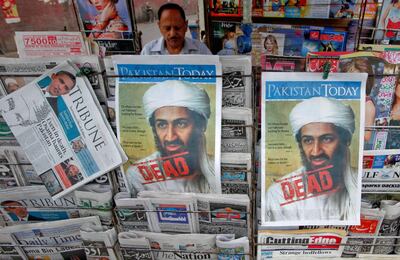
Issues like the presidency of Barack Obama, the death of Osama bin Laden, the Iranian nuclear deal and even the wars in Syria and Yemen are seen as having much lower impact.
There is a rising view among young Arabs that their governments are winning the battle against ISIS, with 78 per cent believing their leaders are successfully dealing with extremism, and compared with 61 per cent last year.
By a clear majority of 58 per cent, the youth of the region think ISIS and its ideology will be crushed, a figure that rises to nearly seven out of 10 in the GCC.
However, Hassan Hassan, senior fellow at the Tahrir Institute for Middle East Policy in Washington DC and columnist for The National, warned that the optimism many young Arabs felt about the demise of ISIS was "betrayed by numerous indications that countries like the US and its allies in the region have little to no interest in rebuilding Iraq and Syria".
It is "hard to be upbeat about the lasting defeat of extremists when governments are not willing to do what it takes to help keep them defeated," he said.
